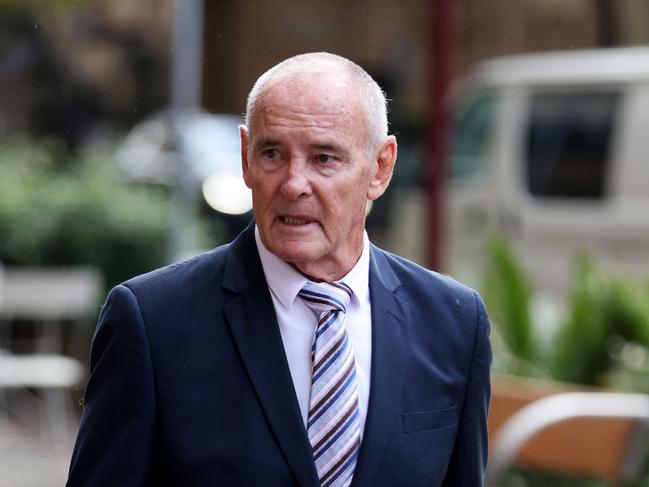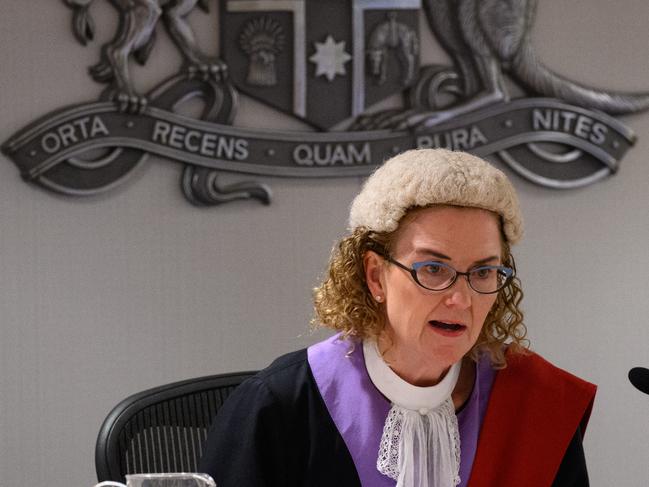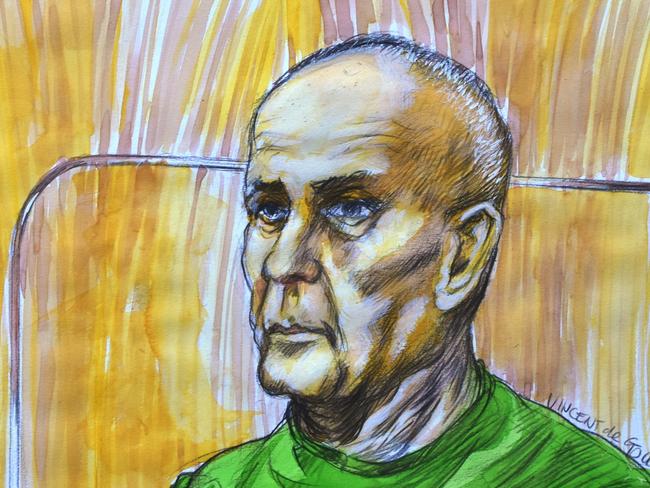Chris Dawson loses bid to quash carnal knowledge conviction over unlawful sexual relationship with teen in the ’80s
Convicted wife killer Chris Dawson has lost his bid to quash a conviction related to his unlawful sexual relationship with a teen in the ’80s.

Convicted wife killer Chris Dawson has lost his bid to quash a conviction over his unlawful sexual relationship with a teenage schoolgirl in the 1980s.
Dawson was in 2023 found guilty of carnal knowledge of a girl, who can only be known as AB, when she was just 16 years old in 1980.
He was sentenced to three years in prison with a two year non-parole period after Judge Sarah Huggett found him guilty of one count of carnal knowledge following a two-week District Court trial.
Dawson launched an appeal against the conviction, with the primary argument being reasonable doubt about the timing of the first sexual encounter between Dawson and AB.

Dawson’s barrister, Stephen Odgers SC, in March told the Court of Criminal Appeal there was doubt about whether it had taken place before December 1980, as AB was in year 11 up until that month.
AB said during the trial the first sexual intercourse occurred when she was 16; however, Dawson claimed the girl was 17.
“The central issue at the trial and on this appeal relates to timing – there was no dispute that sexual intercourse did ultimately take place between the appellant and the complainant, but the question was whether the prosecution proved whether it occurred prior to December 1980,” Mr Odgers told the court in March.

Mr Odgers submitted there was a period in 1980 when Dawson engaged in “romantic behaviour” with AB, including “saying things indicating love, standing close”.
“There’s a difference between being romantic and engaging in sexual intercourse and particularly when the sexual intercourse constitutes a serious offence,” Mr Odgers said.
Justice Kristina Stern dismissed all three grounds of Dawson’s appeal on Thursday, including that the trial judge erred in failing to take into account evidence surrounding the date of sexual intercourse, that she erred in the application of the burden and standard of proof, and that the verdict of guilty was unreasonable.
Justice Stern was satisfied the first kiss happened while AB was in the driver’s seat of Dawson’s car while she was a student of his in year 11.
Her judgment stated that she placed weight on others’ observations of Dawson and AB at the school.
“Having regard to the evidence as a whole, I do not consider that there is a reasonable possibility that these matters are explained by a romantic but non-sexual relationship between the complainant and the applicant prior to the end of the school term in 1980,” Justice Stern said.
She also dismissed arguments that the timing of AB attending fitness classes led by Dawson could give rise to reasonable doubt over when the first instance of sexual intercourse took place.
Justice Stern said she was “wholly satisfied that it is sufficient in nature and quality to eliminate any reasonable doubt as to the applicant’s guilt”, dismissing all three grounds.
Her decision was supported by Justice Sarah McNaughton; however, Justice Peter Hamill dissented in part and concluded the appeal could be quashed and a not-guilty verdict entered as he wasn’t satisfied beyond a reasonable doubt the first sexual intercourse took place before December 1980.
He said AB’s evidence, given honestly, “was based on a sequence of events as to timing that did not withstand scrutiny in certain respects”, and while evidence proved intimacy and “the development of a forbidden love”, it didn’t establish sexual intercourse took place beyond a reasonable doubt.
Justice Hamill said there was no dispute that Dawson had engaged in “reprehensible conduct”.
“As a teacher at her school and as her employer in the context of the complainant babysitting for his family, the applicant nurtured an adulterous affair with the complainant, grooming her in the latter years of high school, and ultimately had a sexual relationship with her,” Justice Hamill said in his judgment.

Mr Odgers in March put to the court there was doubt over whether the first sexual encounter occurred before the indictment period, citing doubt about when driving lessons between Dawson and AB – which is where the “first kiss” or sexual encounter took place – occurred.
Crown prosecutor Helen Roberts SC said it was “not necessary” for the Crown to establish whether AB did or did not hold a learner’s permit at the time of the first sexual encounter.
Mr Odgers had raised questions in March over whether AB had attended fitness classes – led by Dawson and his brother – in 1980 or 1981, as AB testified the first sexual intercourse took place after she’d begun fitness classes with Dawson.
He said there was a “reasonable possibility” AB was mistaken and didn’t attend the classes in 1980, which he argued would make the sexual intercourse having occurred in 1980 “inconsistent”.
However, Ms Roberts said even if AB had only attended in 1981, this didn’t “necessarily give rise to reasonable doubt”, as the agreed facts of the trial stated Dawson and his brother ran the classes in both years.
She told the court there was only one “really important” question, being whether the evidence as a whole was sufficient, credible and reliable to satisfy that the first act of sexual intercourse took place before December 1980.
She said the trial had found AB to be a “truthful witness” noting the passage of time, although some aspects were unreliable.
Dawson was previously convicted of the murder of his wife, Lynette Simms, and was given a 24-year jail sentence with an 18-year non-parole period.
While he unsuccessfully appealed the decision in the CCA last year, Dawson’s legal team filed an application for special leave to appeal to the High Court in February.
The fresh application asks for the High Court to quash his conviction and order a fresh trial.
Originally published as Chris Dawson loses bid to quash carnal knowledge conviction over unlawful sexual relationship with teen in the ’80s


